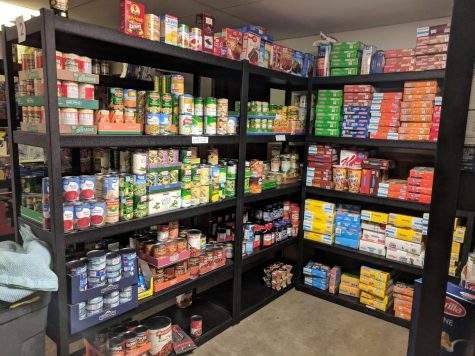Donating over disposing
Corporations are encouraged to donate food to those in need
America wastes roughly $161 billion in food per year. This occurs despite the millions of hungry people that could benefit from donations.
In previous generations, shaming food disposal was a household norm. People growing up were told to clean their plate. Nowadays, it seems that families will keep leftovers for another day or throw the food out entirely.
In Freedom High School, students can be seen throwing their untouched food in the garbage without remorse. In Big Knob Elementary, there used to be a process where you could put unopened items on a tray and they wouldn’t be thrown out.
“Due to the time limit of the food, we can’t donate it even when we want to,” head cook Becky Speiler said.
Certain foods have strict regulations on refrigeration time and cook time. Other factors can affect the products as well.
“People also don’t realize the amount of paperwork that would go into the donation process, since the food is from government funding,” Speiler said.
The situation Freedom is in prevents the kind of measures some of the staff and students would want to take given the opportunity.
“At my old job the amount of food we had to throw out at the end of the day was sickening,” Speiler said.
Restaurants and large grocery stores are the more noticeable culprits. Stores have been known to dispose of food that is still edible and even tear packaging so that “dumpster divers” have no chance of finding anything safe to consume.
The Bill Emerson Good Samaritan Act of 1996 was passed to protect anyone when donating food to people in need. It even encourages food donations by limiting liability. Unless the donating party shows “gross negligence,” they will not be held accountable for the food they donate.
The main challenge for companies seems to be transporting the goods along with storage. It is a hassle to try and package everything when there’s nowhere to put it.
The companies aren’t the only ones with problems though. Even the shelters have a hard time storing what they are given in terms of goods that need refrigeration.
There are organizations forming to ease the stress put on the corporations and shelters by handling the heavy lifting, examples would be Food Finders and Feeding America.
“Refrigerated trucks can go to the Salvation Army and other federally funded programs, there’s organizations in Pittsburgh but not locally,” Jo Shane, in charge of the Unionville Church food pantry said.
At the food pantry, anyone can sign-up to receive the food they need. To avoid the food being wasted by people getting items they won’t eat, it’s not pre-packaged. The people in need simply fill out a request form of what they want to ensure the items get used. It is a solely donation based program.
Food waste is an ever prevalent issue, but with more organizations trying their best, the effects could be  lessened.
lessened.


